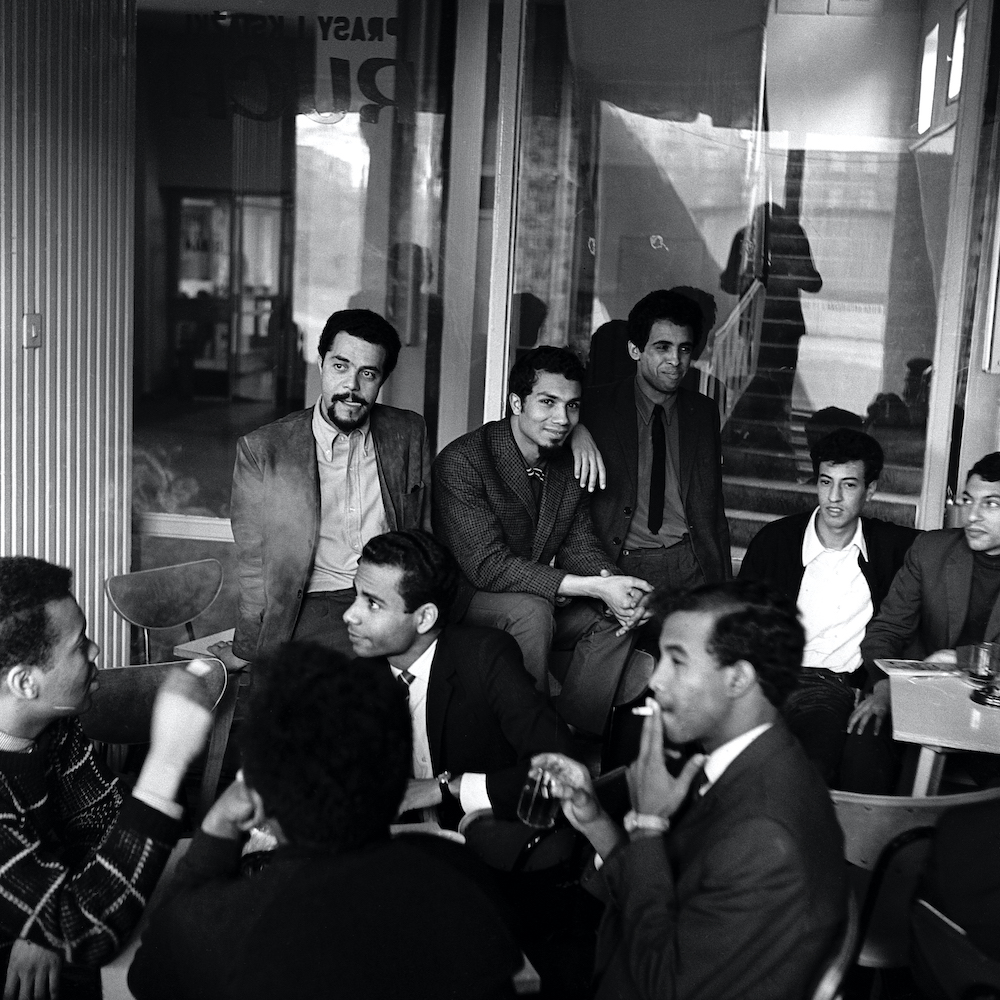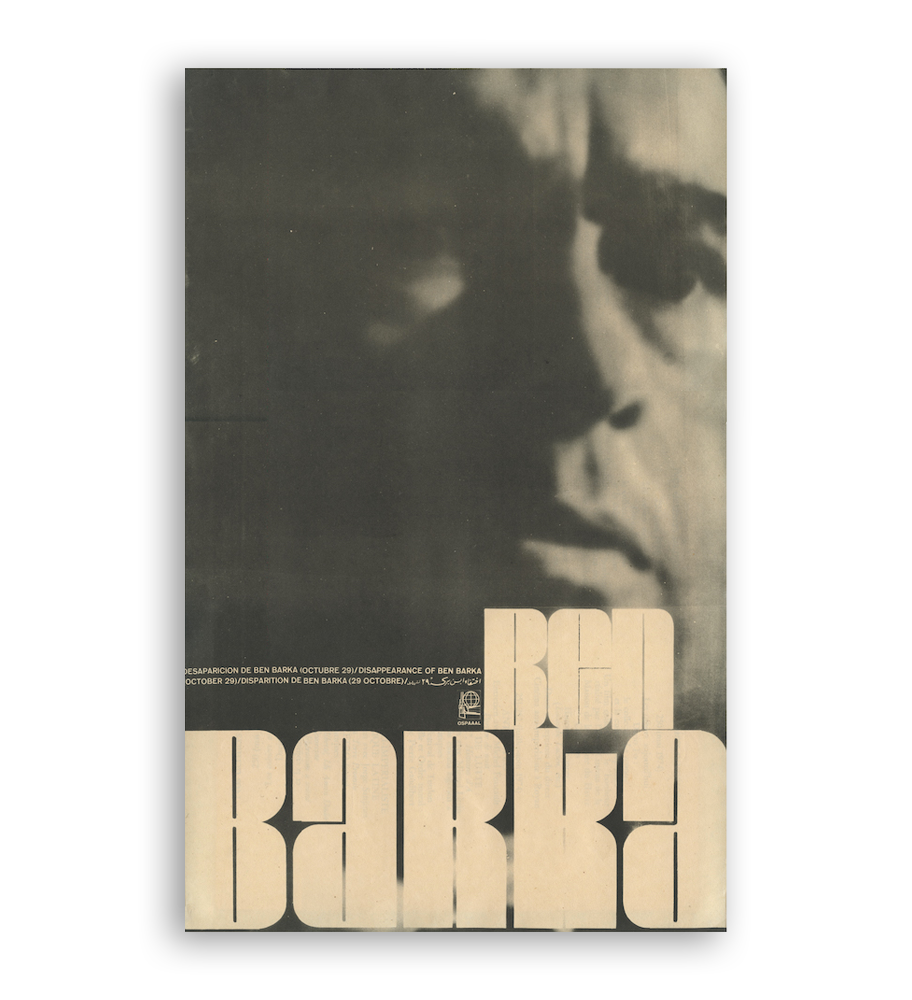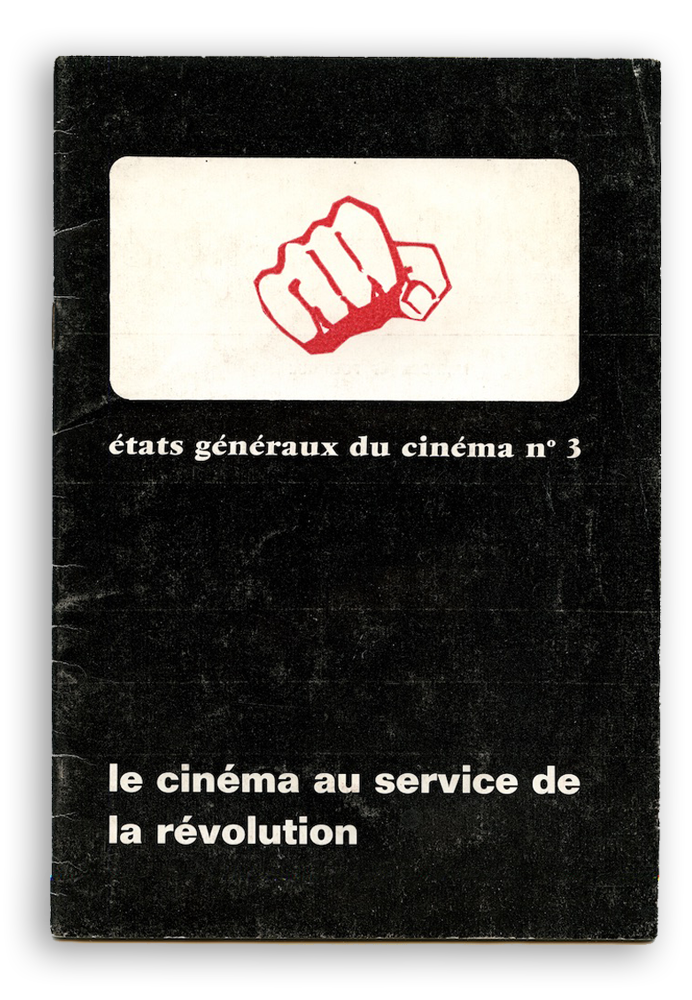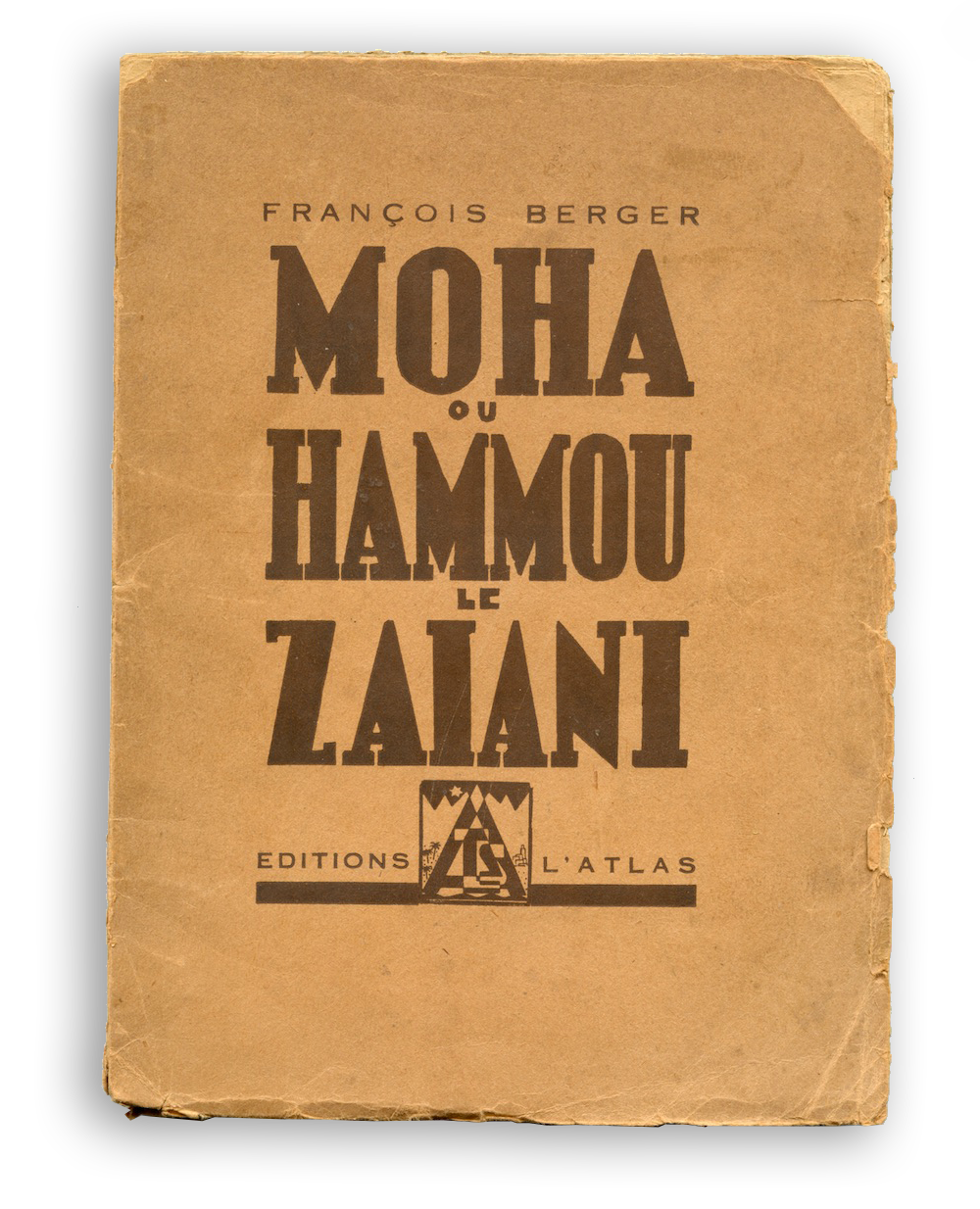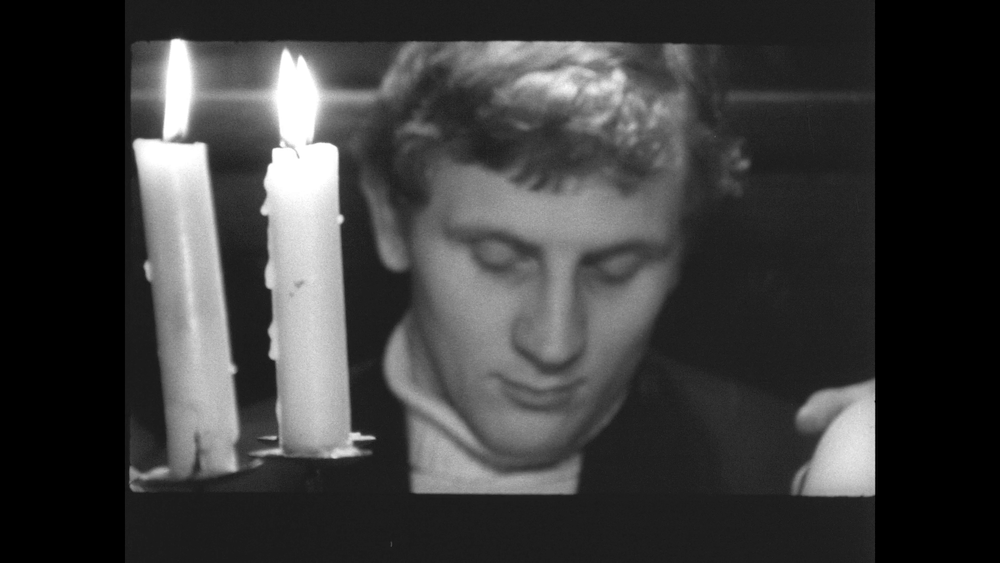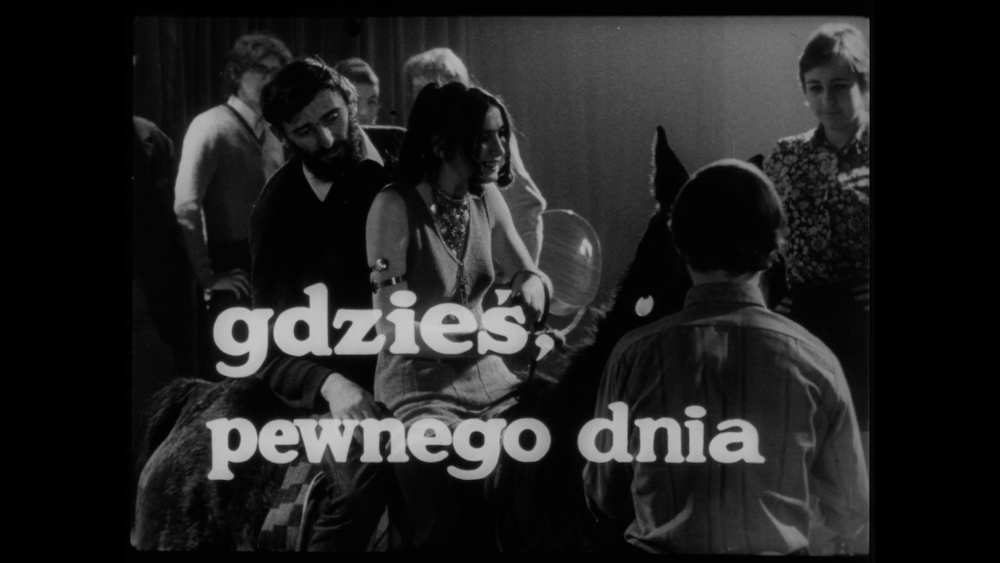3.
REMEMBER
BEN BARKA

Poster Ben Barka, OSPAAAL, 1967, Luis Alvarez
The protests of March 1965 in Casablanca marked the political awakening of the Moroccan youth. They took to the streets and were joined by their parents and the people of Casablanca, full of hopes for the kind of society they wanted to help develop. Affected by the violence and unjust repression of the protests by the authoritarian state of Hassan II, the Moroccan students continued their political activities in Lódź, particularly within the Polish section of the Moroccan National Students’ Union (UNEM), which gave voice to this politicised Moroccan youth.
At the time of his assassination in Paris in October 1965, the left-wing leader Mehdi Ben Barka was actively preparing the Tricontinental conference, which would take place in Havana in 1966, for the convergence of the struggles of the liberation movements of the Third World. The Organisation of Solidarity for the Peoples of Asia, Africa, and Latin America (OSPAAAL) aimed at fighting against imperialism, colonialism, racism, and capitalism.
In Poland, students from the Third World were active in international solidarity movements, organising actions in support of the people of Vietnam, as well as for Black Power and the Palestinian cause, and closely following global unrest apparent in the agrarian struggles and the May 1968 movements. They were also very attentive to national struggles and the development of their own countries. In front of the Moroccan Embassy, the Derkaoui brothers, Karim Idriss, and Abdelkader Lagtaa protested and denounced the increasingly severe repression by the State. Mostafa Derkaoui even put on a theatre play at the university language centre, entitled “March 23rd” (in reference to March 1965).
The films made by these students in Poland echo such interests and commitments, attempting to develop a political cinema which raises societal and historical questions, such as the fight of Moha ou Hammou Zaini against the colonisers (Mostafa Derkaoui’s Amghar), the disappearance of Mehdi Ben Barka (Abdelkader Lagtaa’s A Shadow Among Others), but also international solidarity for the liberation of oppressed peoples in the Third World (Mostafa Derkaoui’s Somewhere on a Given Day) and the 1968 revolts (Mostafa Derkaoui’s People from the Cellar). Until today, such themes have rarely touched upon in Moroccan cinema, and are lacking from its History.
Copyright © 2020 / Léa Morin — CINIMA3 / Talitha
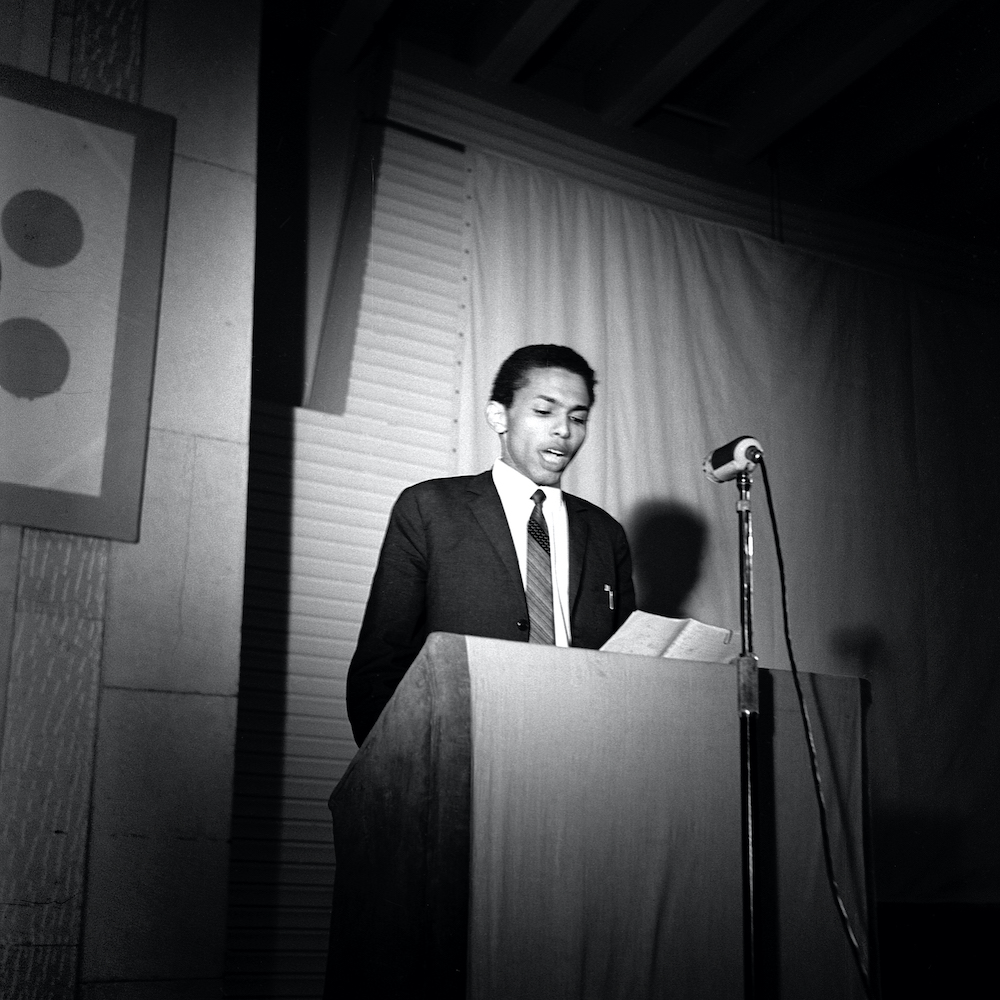 3.1
3.1 